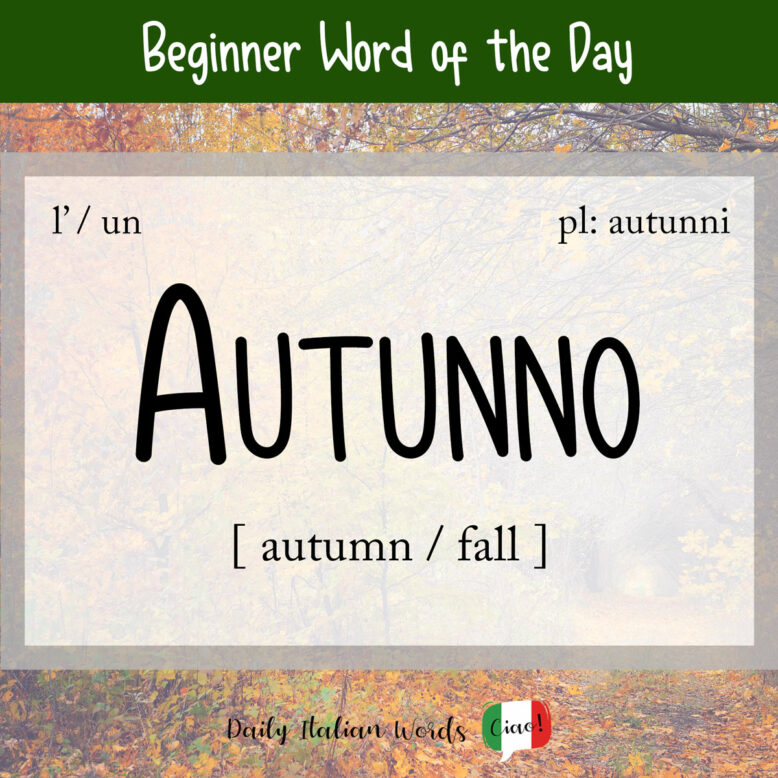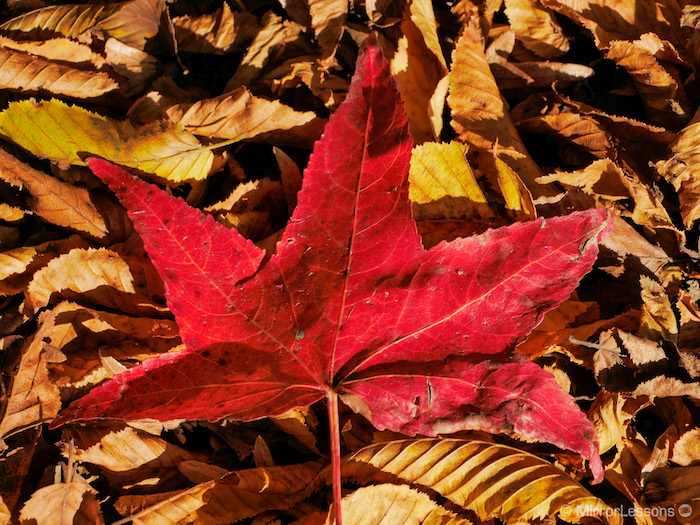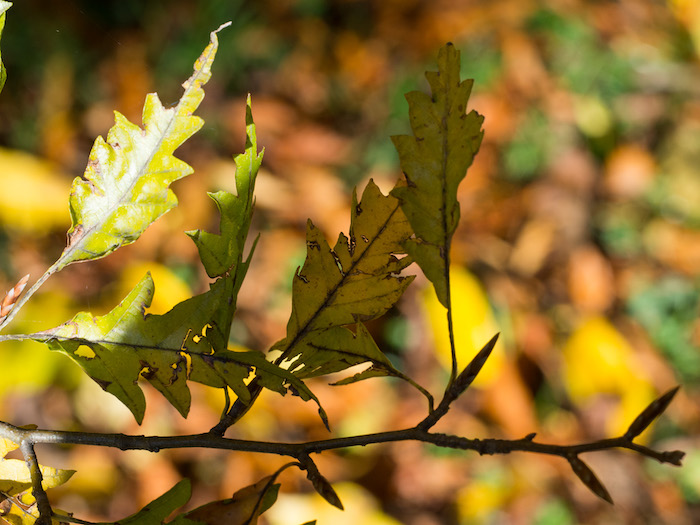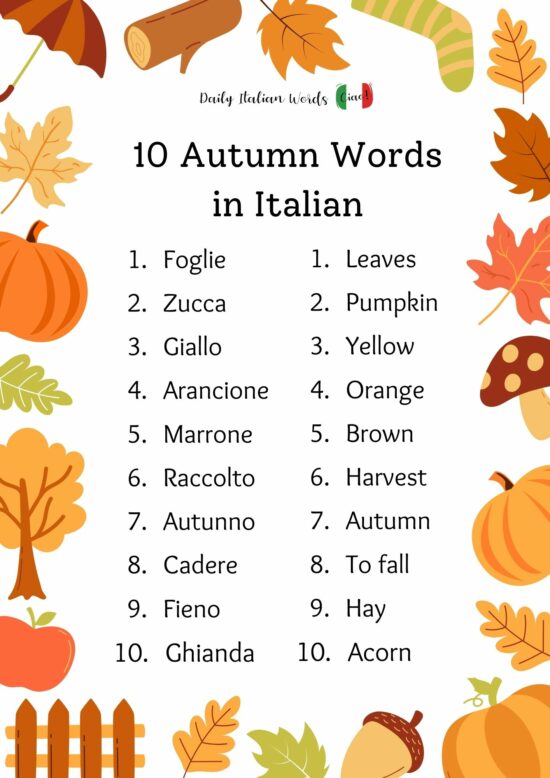Today is officially the first day of fall (il primo giorno di autunno) in the Northern Hemisphere, so what better word to choose as “word of the day” than autunno itself!

The first day of the Autumnal Equinox (equinozio d’autunno) may fall on any day between September 21st and 24th. It is one of two days during the year when day (giorno) and night (notte) are more or less equal in length due to the sun’s position above the Earth’s equator.
With the change in season comes the end of Daylight Saving Time (ora legale). On November 3rd, the clocks (orologi) move back one hour, giving us less light in the evening but more in the morning.
The start of autunno brings many other changes too. The children (bambini) head back to school (scuola), temperatures (temperature) start to decrease, birds begin their migration (migrazione) south to warmer climates, and the leaves (foglie) on the trees start to change colour (cambiare colore) and fall (cadere) to the ground.

Autumn is also wonderful time to visit Italy if you aren’t tied down to the strict schedule of the school year. Not only is the weather (tempo) much cooler (più fresco) but the cities also tend to be less crowded (affollato) than during the peak summer months, resulting in cheaper accommodation (alloggi) and transportation (trasporto).
In many parts of the country, you can enjoy colourful fall foliage (fogliame) that rivals that of even New England. And don’t forget to check out one of the local festivals (sagre) during the autumn months as you’ll be able to experience fresh local produce such as wine (vino), chocolate (cioccolato), and truffles (tartufi) at its best!
Autunno vs autunnale

In Italian, both autunno and autunnale translate to autumn in English but whereas the former is a noun, the latter is an adjective.
L’autunno è la mia stagione preferita.
Autumn is my favourite season.
Adoro il clima autunnale.
I love the autumn climate.
You can also use autunno to define the period that precedes the third age: l’autunno della nostra vita (the autumn of our life).
L’autunno caldo (warm autumn) refers to an important point in recent Italian history when workers initiated large strikes in Northern Italy between 1969 and 1970 to demand better pay and working conditions.
Vocabulary associated with autunno:
- marrone = brown
- giallo = yellow
- arancione = orange
- zucca = pumpkin
- vento = wind
- cool = fresco
- spaventapasseri = scarecrow
- fieno = hay
- raccolto = harvest
- foglie che cadono = falling leaves


Heather Broster is a graduate with honours in linguistics from the University of Western Ontario. She is an aspiring polyglot, proficient in English and Italian, as well as Japanese, Welsh, and French to varying degrees of fluency. Originally from Toronto, Heather has resided in various countries, notably Italy for a period of six years. Her primary focus lies in the fields of language acquisition, education, and bilingual instruction.


